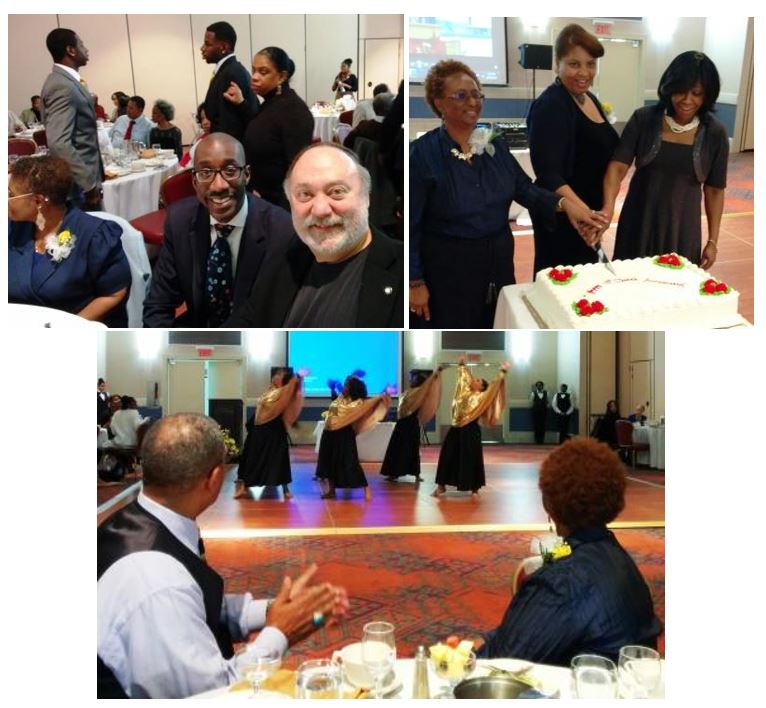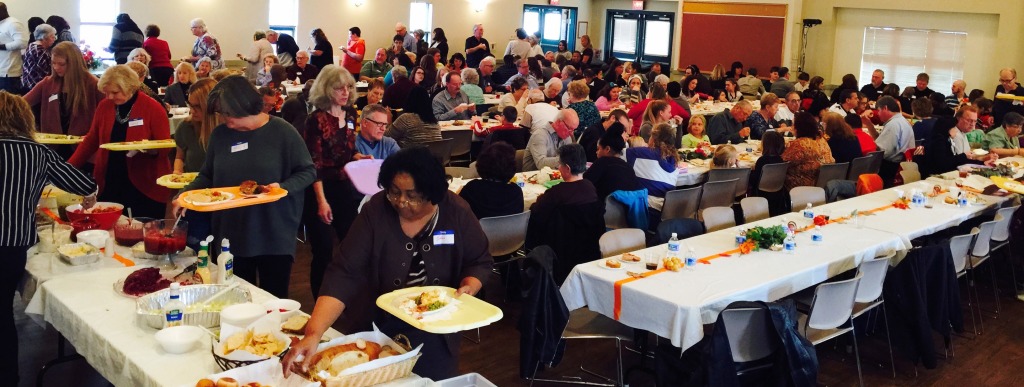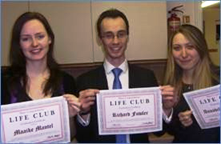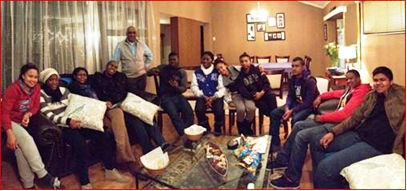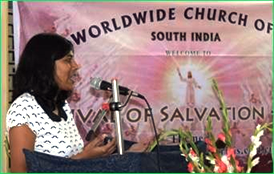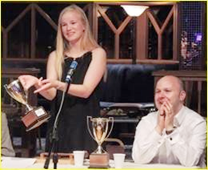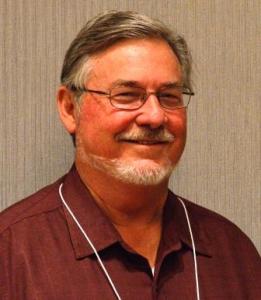Dear Brothers and Sisters in Christ,
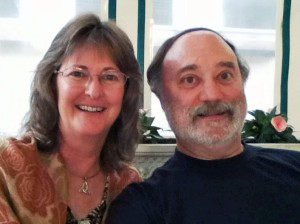 Recently, three couples who are our dear friends shared that they are expecting grandchildren. For two couples, it’s their first grandchild and they gave me a delightful rundown of their plans to be present at the birth. For the third couple, it’s their second grandchild and they too plan to be present for the wonderful event.
Recently, three couples who are our dear friends shared that they are expecting grandchildren. For two couples, it’s their first grandchild and they gave me a delightful rundown of their plans to be present at the birth. For the third couple, it’s their second grandchild and they too plan to be present for the wonderful event.
Tammy and I still remember the glorious emotions we experienced awaiting the arrival of both of our children. We still talk about it as if it were yesterday. I imagine most of you share similar memories and some of you are anticipating the wondrous time of new life in the weeks or months ahead. So it’s fairly easy for most of us to identify with the joy felt by two pregnant women in Luke’s account known as The Visitation.
At that time Mary got ready and hurried to a town in the hill country of Judea, where she entered Zechariah’s home and greeted Elizabeth. When Elizabeth heard Mary’s greeting, the baby leaped in her womb, and Elizabeth was filled with the Holy Spirit. In a loud voice she exclaimed: “Blessed are you among women, and blessed is the child you will bear!… As soon as the sound of your greeting reached my ears, the baby in my womb leaped for joy (Luke 1:39-42, 44).

In response, Mary offered a song known as The Magnificat.
“My soul magnifies the Lord, and my spirit rejoices in God my Savior, for he has regarded the low estate of his handmaiden. For behold, henceforth all generations will call me blessed; for he who is mighty has done great things for me, and holy is his name. And his mercy is on those who fear him from generation to generation. He has shown strength with his arm, he has scattered the proud in the imagination of their hearts, he has put down the mighty from their thrones, and exalted those of low degree; he has filled the hungry with good things, and the rich he has sent empty away. He has helped his servant Israel, in remembrance of his mercy, as he spoke to our fathers, to Abraham and to his posterity forever” (Luke 1:46-55, RSV).
The phrase “my soul magnifies the Lord” can mean to praise, glorify, celebrate, adore, enlarge, exalt or extol. The words convey an experience of being enlarged, lifted up and out of one’s self by power from another realm. This is a quality of joy and hope that transcends human emotion—it comes only from God.
Mary’s song, which weaves together the language of several of the Psalms, is patterned closely on the song of Hannah, who could not bear children until the Lord visited her (1 Samuel 2:1–10). While Mary’s song is focused on humility and calmness, Hannah’s song focuses on her sense of indignation, followed by personal triumph. An unusual feature of both songs is that God is portrayed in terms of what he has done as well as what he will yet do. This is a literary technique where the past tense is used to express hope for the future. Both songs remind us that what God has done in the past is what God will do in the future. As we continue to celebrate Advent, we celebrate this fact—noting God’s involvement in our past and relying on his involvement in our future. We rejoice in knowing that all God’s acts are the fruit of his consistent character—his faithfulness demonstrated in Jesus Christ.
Another noteworthy feature in Mary’s and Hannah’s songs is that God’s justice and mercy are presented in terms of the reversal of fortunes for the proud and the humble, the mighty and the lowly, the rich and the poor. The God of our past and future will make everything right, straighten everything that is crooked and heal all that is broken. We read of this in Isaiah 40:1-5, a passage often sung during Advent in performances of Handel’s sacred oratorio, Messiah.
The biblical accounts of Hannah and Mary (with Elizabeth) are chock-full of symbolism and prototypes from the past. Both Hannah and Elizabeth were barren until, in their later years, God intervened miraculously as he had for Sarah, Abraham’s wife. In the Old Testament, barrenness was much worse than an inability to bear children—it was a symbol of the end of human potential, the choking off of life. It pointed to the impotence of the human race in the face of sin and death. It’s no wonder that God would use a barren woman, Elizabeth, to point to his Son Jesus, who announced and accomplished the astounding reversal that Isaiah and other prophets proclaimed.
At Mary’s greeting, Elizabeth, who was pregnant with John the Baptist, said “the baby in my womb leaped for joy.” Both Elizabeth and Mary experienced great joy in receiving and proclaiming God’s sure promise concerning the future. They knew that God’s promises always come with the power to see them fulfilled. The overlapping pregnancies of these women were beautiful signs that what was promised was about to happen. In God’s economy, it already had! Mary’s song—The Magnificat—celebrates the divine events as though they already had occurred. She knew that God is as good as his Word!
Mary and Elizabeth symbolically represent the poor and oppressed, those of “low estate,” who can be filled with joy knowing their hope is in God who is faithful to fulfill what he has promised. The two miraculous pregnancies are living examples of what Jesus later proclaimed: “With man this is impossible, but with God all things are possible” (Matthew 19:26). In his almighty love, God entered this world in human flesh. All who positively, willingly respond to that love by embracing their new lives in Christ, will experience magnificent joy for all eternity.
In joy,
Joseph Tkach
PS: It was a treat for me to join Pastor Frank and Leslie Howard in Newark, New Jersey to celebrate the 15th anniversary of the 24/7 Community Church. This is the first church plant after our doctrinal transformation. They began with 14 members and now have 125. Here are four pictures of the event, bearing in mind that I make no claim to being a photographer.


